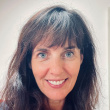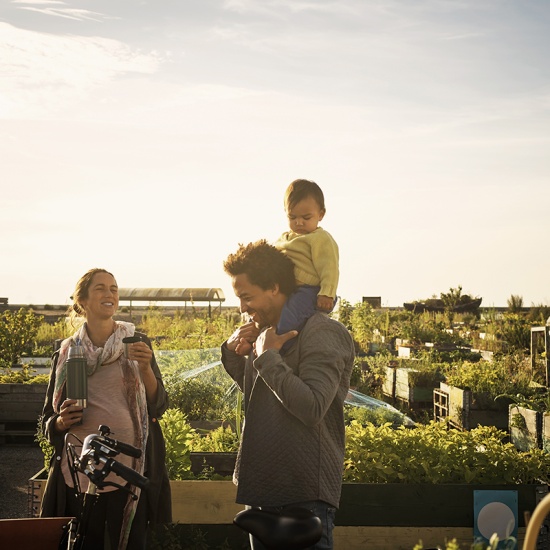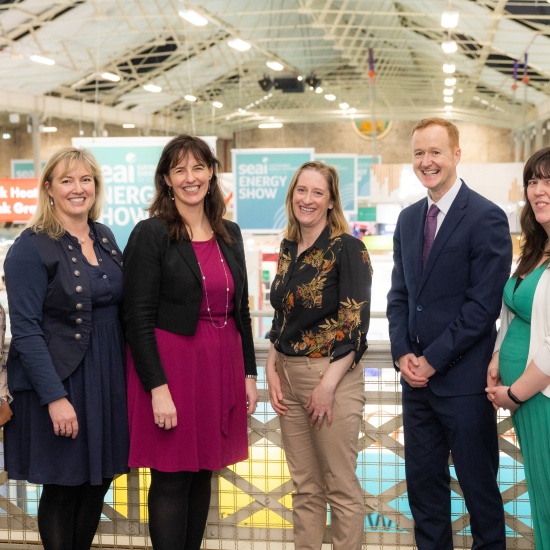What you do matters, make it count!
Margie McCarthy reflects on the conversations led by our keynote speakers at the annual SEAI National Energy Research and Policy Conference 2022.
What you do matters, make it count!
These words were from Jessie Sheehan, representing the youth voice at the SEAI National Energy Research and Policy conference in September.
The conference looked at the role of energy research and policy in achieving Ireland's long-term clean energy goals. It showcased the latest SEAI research in supporting communities and understanding behavioural change, while featuring keynote speakers, such as Jessie.
Many years ago, I was asked to give a talk at a girl's school about my experience as a 'woman in engineering'. I remember being surprised when asked if my career offered me good work life balance. It definitely wasn't something I or my friends were thinking about when we were in their shoes. I had assumed that my life experience was theirs and they would be concerned or curious about the same things I was at their age. Learning I was wrong was something that influenced my entire career. I now strive to live by the ethos of 'don't design it for us, design it with us'.
A plea to act
Having had this early lesson and spent years advocating for underrepresented voices to be heard, I don't know why I was surprised by the reaction Jessie's words evoked in me. They shook me in a way I didn't expect. She spoke of genuine fear of whether her generation could or should have children, of where they will work and will there be a safe place for them to live. Things that I had heard many times before. Things that I took for granted at her age, and that our young people shouldn't have to worry about. But Jessie drove it home. She was motivating, uplifting and stark all at once, which gave real power to her call to remember that 'What you do matters, make it count!'.
Dr Mike Ryan, World Health Organization
Dr Mike Ryan of the World Health Organization (WHO) also spoke at the conference. Keen to learn from the tragedy that was and is the Covid pandemic, I asked Mike what it taught us that could be used to drive cohesive climate action. While Mike spoke of the challenges, he also spoke of the glimmer of hope that the Irish response represented. Here we saw mass uptake of the vaccine and a societal response that largely acted together to protect the most vulnerable. He said our shared trust in the science, the transparency and honesty in which decisions were made, and a strong tradition of listening to objective journalism were key ingredients. He smiled saying that it's one of the few countries left where the radio is on and listened to everywhere, and people quote news items they have heard on the airwaves to each other. Apathy towards truth has not slipped in, misinformation or mistruths remain unacceptable.
Working towards the common good
In my role I often have to pick things apart, spending time looking at what isn't working, where the gaps are to work towards solutions or opportunities. It's important though to look at what we do right too. In 2015 we became the first country to legalise same sex marriage by popular vote to international applause, when people rose above personal doctrine and decided that shared equality is right and important. We have established a deliberative process in citizen's assemblies that is world leading. We cared about each other during Covid, we mostly did the right thing. In all of these things, we managed to pull up out of our own interests and see the common good, recognising the benefit for us individually by thinking about the benefit for society. We need to do this for our shared future on this planet.
In an episode of the current series of SEAI Podcast 180 Degrees, Minister Eamon Ryan speaks of how the world has changed so much in his lifetime, so why can't it change again. He reminisces how streets were safe to let a child off your hand and run ahead, with no fear of cars. Over Covid I remember how one of the few good things was that I could run the roads around my home without looking over my shoulder to constantly check for a car. People ate out on the streets; we reclaimed our roads. Yet our energy balance tells us we have gone right back to old ways, with individual car use back to pre-Covid days. What we do matters. Make it count.
We've paved the path for change
We have made such significant, momentous steps forward in the recent past. Legislation enshrining our carbon budgets, and sectoral emissions ceilings. Hugely ambitious climate action plans, that need to go even further. A programme of engagement across our nation through the National Dialogue on Climate Change. We've had significant investment and delivery of renewables and energy efficiency, and yet we are struggling to shift our emissions to a downward trend. People do care. The recent EPA report, Climate Change in the Irish Mind, highlighted the concern shared by the Irish public. In SEAI alone, over 600 sustainable energy communities have organised themselves in a shared interest to make a difference. Yet we struggle to knit it all together.
A vision for our future
It seems to me that what we are missing is a conversation on our shared vision of the future. Something that takes us above the challenges we face, of which there are many, but instead sets a focus on where we are heading to. Much of our conversation seems to concentrate on how hard change is, today's concerns, or what we are trying to avoid, and that's pretty terrifying. Drought, annihilation of species, food shortage, reduced inhabitable land and what we must do to avoid these things. Yet everyone knows you start with the vision, where do we want to be, and then plot the path to that outcome. It's not enough to say we want to be carbon neutral by 2050. That's about taking out emissions. It's not about the place that will exist then, where humankind survives and thrives. We need to know what kind of society we want to be, what shared spaces we want, how we want to think, feel, what we want to do in that society. Then we will have a visualised future to work towards.
Believe me, I don't want to spend every day thinking of 2050. I want to live for today and appreciate the time I have. Well, you never know, right?! But the power of visualisation and shared purpose have been proven time and again to work. Ireland has often punched above its weight, and we have a strong essence of community still thriving. Our citizen's assembly on climate action clearly wanted Ireland to be a leader in tackling climate change. Why not have a conversation on our shared vision for the future?
Two actions to take today, for the future
So, I have two requests. Firstly, if you work in climate, take time to listen to others not always involved in this struggle. Their concerns, their questions, their solutions are valid and need to be part of the pathway forward. Listen. They will likely make you think differently and creatively about that problem you are trying so hard to solve. Second, I challenge you to think bigger than the mountain that is the targets we are chasing. Instead set your vision on the wonderful picture of a shared future where all our lives are better. Catalyse discussions on this. If you want inspiration, I highly recommend The Future We Choose by @CFigueres and @tomcarnac. Then I hope the steps towards it will make more sense for us all and allow us to truly understand that what we do today does actually matter. So, let's make it count.
Missed the Energy Research conference? Not to worry, you can watch back all the videos of our keynote speakers.
Watch the videos



